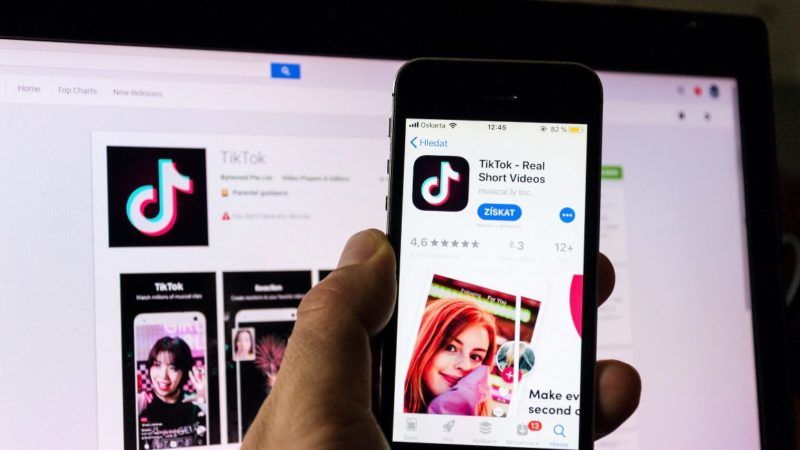Trump Administration Formally Bans TikTok, WeChat Apps From Online Stores in U.S.
There’s nothing good about censoring communication platforms citizens want to use.

The U.S. Department of Commerce today announced that it will, as threatened, implement a ban on the TikTok and WeChat apps, thus censoring tools Americans use to communicate each other while blaming it all on China's Communist rule.
As of Sunday, online mobile or app stores will not be able to distribute or update either WeChat or Tiktok. WeChat will further be banned from processing payments within the United States. This enacts President Donald Trump's August executive orders, in which he claimed that the two apps threaten the United States due to their parent company's ties to the Chinese government.
"At the President's direction, we have taken significant action to combat China's malicious collection of American citizens' personal data, while promoting our national values, democratic rules-based norms, and aggressive enforcement of U.S. laws and regulations," Commerce Secretary Wilbur Ross said in a press release today.
Restricting which communication tools Americans can use in fact undermines American values and our "rules-based norms." It is more akin to how countries like China attempt to control how citizens can communicate.
"The Commerce Department's decision to bar transactions with TikTok and WeChat raises serious First Amendment concerns and should be scrutinized carefully by the courts," wrote Jameel Jaffer, executive director at the Knight First Amendment Institute, following today's orders. "The Supreme Court held 50 years ago that the First Amendment protects Americans' right to access foreign media. This protection is no less important today. The privacy and security concerns with platforms like TikTok and WeChat are real, but we should be wary of setting a precedent that would give this president, and every future one, broad power to interfere with Americans' access to information and ideas from abroad."
The administration is being sued by both TikTok and at least one employee who works there over the broadness of Trump's order, arguing that this move violates their due process protections and fails to identify an actual threat. One of the suits notes that "TikTok is neither owned, operated, nor controlled by China or the Chinese government. Indeed, TikTok does not even operate in China."
Attempts to try to force the sale of TikTok to an American company such as Oracle have stalled, with Trump complaining that the U.S. government wouldn't get a cut of the sale.
Today's order will not stop Americans who have already downloaded the apps from using them, but it will make it harder others from downloading them.
The biggest "winners" of this order are neither the American public nor the Trump administration but the companies that provide virtual private networks, a.k.a. VPNs, which can be used to bypass government-mandated bans and firewalls. TechCrunch notes that whenever a country attempts to ban TikTok, VPN companies see a surge in customers looking for ways to bypass the rules.


Show Comments (126)